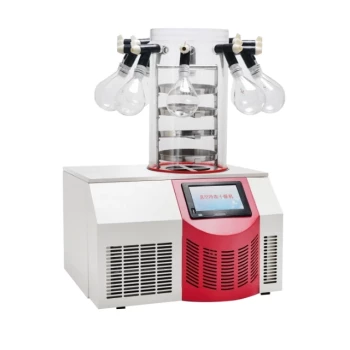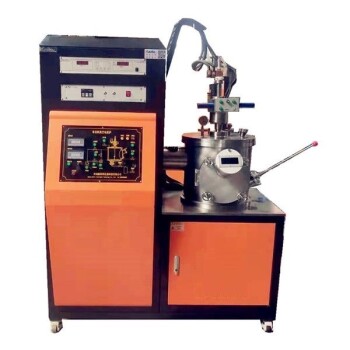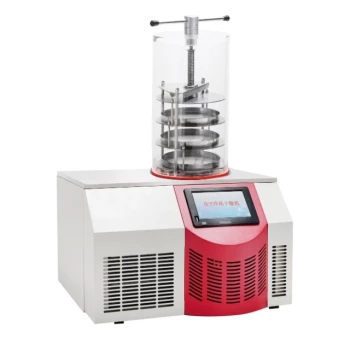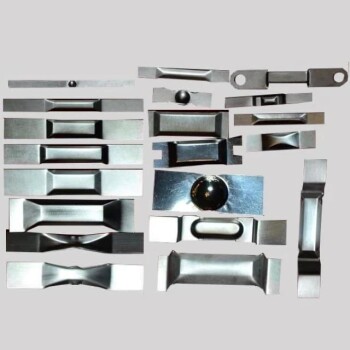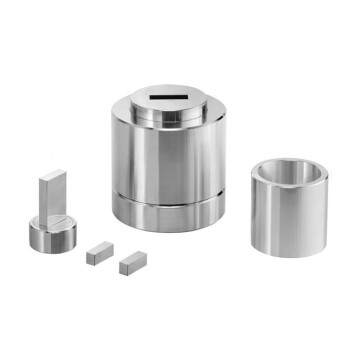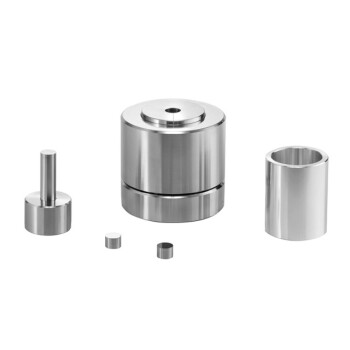In essence, fast pyrolysis of wood is a high-temperature process that rapidly decomposes wood in an oxygen-free environment to primarily produce a liquid fuel. This technique uses a high heating rate and a very short reaction time—typically less than two seconds—at temperatures between 400-550°C to maximize the yield of a dark, viscous liquid known as bio-oil.
The critical distinction of fast pyrolysis is its deliberate engineering to maximize the liquid bio-oil output. Unlike slower methods that favor solid bio-char, fast pyrolysis is optimized for speed and temperature to capture valuable chemical compounds as a liquid before they can break down further.
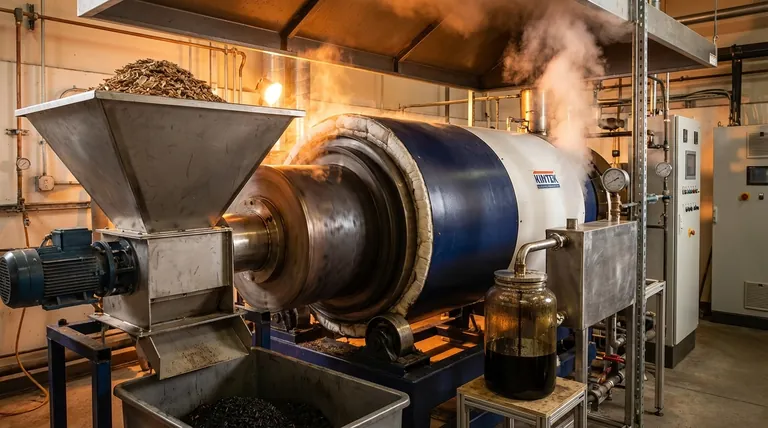
How Fast Pyrolysis Works: A Look Inside the Reactor
To understand fast pyrolysis, it's essential to grasp the core principles that differentiate it from simple burning or other thermal treatments.
The Core Principle: Thermal Decomposition Without Oxygen
All pyrolysis involves heating a material in the absence of oxygen. Preventing oxygen's presence is crucial because it stops the wood from combusting (burning) and instead forces its complex organic structures to thermally crack and break down into smaller molecules.
This decomposition results in three distinct product streams: a liquid, a solid, and a gas.
The Critical Factor: Speed and Temperature
The "fast" in fast pyrolysis refers to two key parameters: a high heating rate and a short vapor residence time. Wood particles are heated to the target temperature of 400-550°C extremely quickly.
The vapors produced are immediately removed from the hot reactor zone and cooled in under two seconds. This rapid quenching is the most important step; it prevents the valuable liquid precursors from further reacting and breaking down into less desirable permanent gases and char.
The Three Key Products and Their Uses
The output of fast pyrolysis is always a mix of solid, liquid, and gas, but the process is specifically tuned to make the liquid fraction dominant.
Bio-oil: The Primary Liquid Fuel
Bio-oil (or pyrolysis oil) is the main product, often comprising up to 75% of the output by weight. It is a dense, dark liquid with potential as a renewable fuel or as a feedstock for producing specialty chemicals.
Bio-char: A Valuable Solid Co-product
This stable, carbon-rich solid is similar to charcoal. Bio-char has significant applications as a soil amendment to improve fertility and as a method for long-term carbon sequestration. It can also be upgraded into activated carbon for filtration.
Syngas: The Non-Condensable Gas Fuel
The process also yields a mixture of combustible gases, often called syngas. While not the primary target, this gas stream is often captured and used to provide the energy needed to power the pyrolysis process itself, improving the system's overall energy efficiency.
Understanding the Trade-offs
While promising, fast pyrolysis is not without its technical and economic challenges. A clear understanding of its limitations is necessary for any serious evaluation.
High Energy Input
Reaching and maintaining the required temperatures at a rapid rate is an energy-intensive process. The overall energy balance must be carefully managed to ensure the system produces more energy than it consumes.
Demanding Feedstock Preparation
For the reaction to occur quickly and uniformly, the wood feedstock must be thoroughly dried and ground into very fine particles. This pre-processing adds significant operational complexity and cost to the overall system.
Bio-oil Quality and Stability
The raw bio-oil produced is not a "drop-in" replacement for petroleum fuels. It is highly acidic, chemically unstable, and contains a high water content, meaning it must undergo significant and often costly upgrading before it can be used in conventional engines or refineries.
Making the Right Choice for Your Goal
The specific parameters of a thermal decomposition process are chosen based on the desired end product.
- If your primary focus is maximizing liquid biofuel production: Fast pyrolysis is the correct pathway, as its conditions are deliberately optimized for high bio-oil yield.
- If your primary focus is creating stable carbon for soil amendment: Slower pyrolysis at lower temperatures (around 400-500°C) is a more effective method for maximizing bio-char yield.
- If your primary focus is generating a combustible gas for power: High-temperature gasification (above 700°C), a related but distinct process, is designed to convert nearly all the biomass into syngas.
By understanding the specific conditions of fast pyrolysis, you can effectively assess its role in converting biomass into valuable liquid resources.
Summary Table:
| Aspect | Fast Pyrolysis Characteristic |
|---|---|
| Temperature | 400-550°C |
| Reaction Time | < 2 seconds |
| Primary Product | Bio-oil (up to 75% yield) |
| Key Principle | Rapid heating and vapor quenching to maximize liquids |
| Other Products | Bio-char and syngas |
Ready to explore biomass conversion solutions for your laboratory? The efficient thermal processing of materials like wood is key to developing sustainable energy and chemical feedstocks. At KINTEK, we specialize in providing high-quality lab equipment, including reactors and pyrolysis systems, to support your research and development in bio-oil, bio-char, and renewable fuels. Let our expertise help you optimize your processes. Contact KINTEK today to discuss your specific laboratory needs!
Visual Guide

Related Products
- Electric Rotary Kiln Small Rotary Furnace Biomass Pyrolysis Plant
- Customizable High Pressure Reactors for Advanced Scientific and Industrial Applications
- Chemical Vapor Deposition CVD Equipment System Chamber Slide PECVD Tube Furnace with Liquid Gasifier PECVD Machine
- RF PECVD System Radio Frequency Plasma-Enhanced Chemical Vapor Deposition RF PECVD
- VHP Sterilization Equipment Hydrogen Peroxide H2O2 Space Sterilizer
People Also Ask
- How is energy converted into biomass? Harnessing Nature's Solar Power for Renewable Energy
- What is a disadvantage of biomass energy? The Hidden Environmental and Economic Costs
- What are the components of biomass pyrolysis? A Complete Guide to the System, Products, and Process
- What are the products of pyrolysis of biomass? Unlock Bio-Char, Bio-Oil, and Syngas
- What are the different types of pyrolysis machines? Choose the Right System for Your Output





